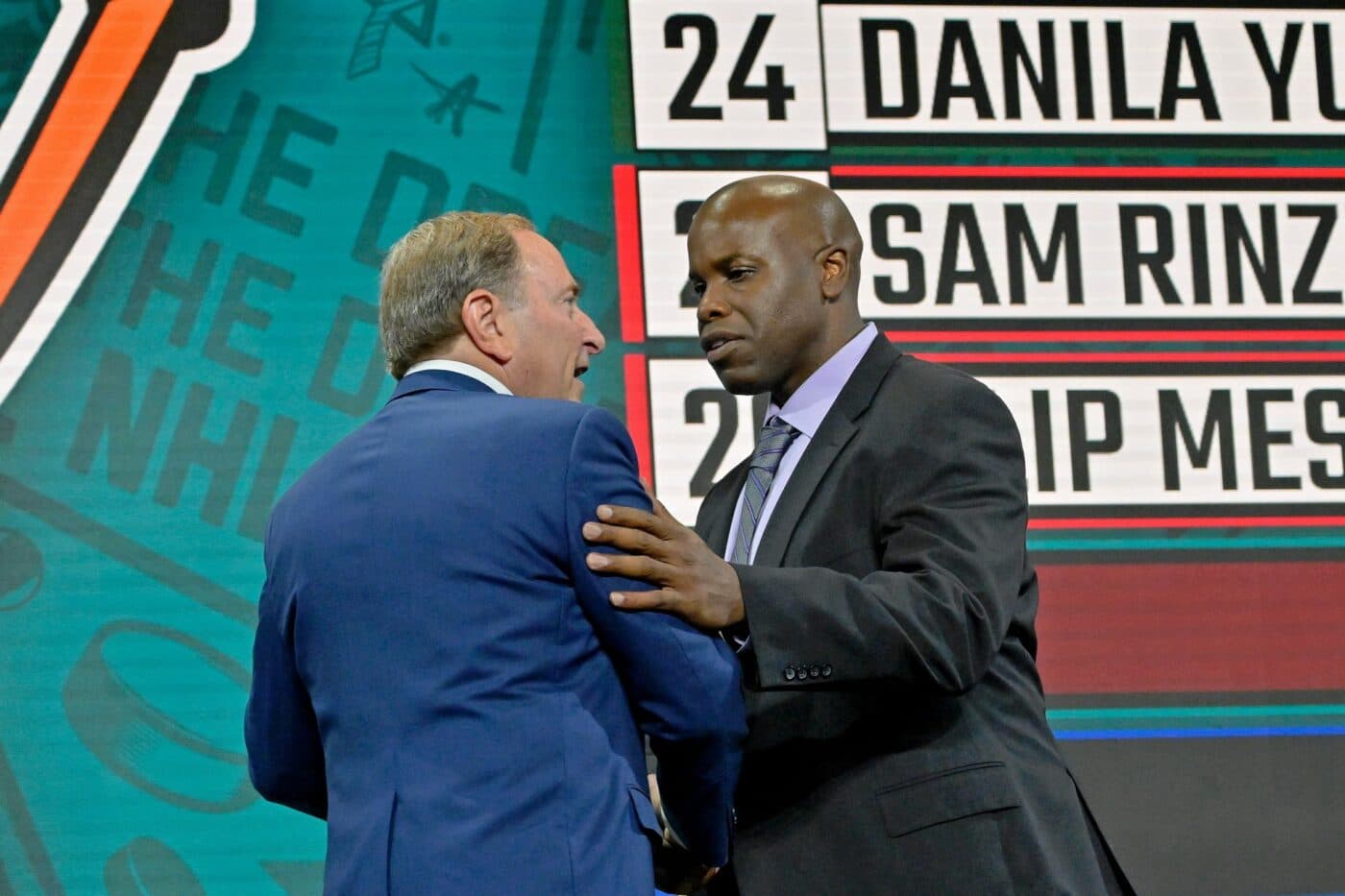Four teams could be willing to flip cap space for draft capital this offseason

A popular route for rebuilding teams in recent years has been to take on unsavory contracts in exchange for draft picks from a contender. It is a win-win: one side gets monetary flexibility and the other looks toward the future. With dozens of teams ready to compete in 2023-2024, the options for cap graveyards are few and far between. On Tuesday’s episode of Daily Faceoff Live, hosts Tyler Yaremchuk and Frank Seravalli discussed which bottom feeders will take an active role in doling out cap space.
Tyler Yaremchuk: Let’s talk about some of the teams that are firmly in the rebuild process. One of the things we have seen over the past few offseasons was that as the salary cap did not change, lower seeded teams have weaponized their cap space in trades. Who are the teams who can use their cap space to add future assets this summer, Frank?
Frank Seravalli: It’s actually a pretty thin crop. I was talking about this with an NHL GM yesterday; the market of teams that are in the mix to take on bad contracts has dwindled a bit. We have seen some of the teams who previously took that approach building up and going in a different direction.
I’m going to throw four teams at you that are all in various different stages of their rebuild in terms of using cap space to take on bad deals.
The team that stands out most is the Chicago Blackhawks. They’ve got tons of cap space and a willingness to use it.
Next in terms of aggressiveness are the Philadelphia Flyers. They have the least amount of cap space on our list, but they will be trading away players that open up more flexibility for Daniel Briere.

I would put the San Jose Sharks next, and say they are willing to get creative and utilize some of the spending capability they have from their ownership group. Mike Grier has been on the job for a year, and has not really begun their asset harvest yet.
Lastly, I would name the Anaheim Ducks. Pat Verbeek has an appetite for this sort of deal; he’s entertained those types of discussions before and weaponized cap space last summer in a different way, signing John Klingberg to recoup assets later on. That did not work out the way that he had planned, but he sets a high price.
With where the Ducks are in the draft and the likelihood they land a star player, they will have to spend to round out their defensive corps. They may not have quite as much cap space as Chicago, but they have the ability to do it.
Tyler Yaremchuk: You mentioned the Sharks and I have a followup question. When we think about weaponizing cap space, that usually means taking on bad contracts and bailing out other teams to gain picks. For San Jose, could that also mean that they are more willing to retain serious money on pieces like Erik Karlsson or Logan Couture?
Frank Seravalli: The Sharks have been trying to figure out how salary retention will affect the asking price for their veteran players. They are definitely willing to do that, but they are also willing to get creative and take on other contracts at the same time. I’m curious to see how far Mike Grier is willing to go in this direction of using cap space to try and get this team turned around. They don’t have a lot to show for over three years of irrelevance and still have a lot of players on their team that have term.
You can watch the entire episode here…